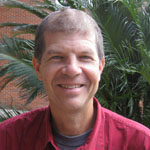Message From the Chair
 Welcome to the Web Page for the Department of Wildlife Ecology and Conservation at the University of Florida! The department is at the forefront of increasing understanding and knowledge of the ecology, conservation, and management of wildlife and their habitats through undergraduate, graduate, and continuing education, research, and extension. Our programs cover the full breadth of issues related to wildlife in the state of Florida, and we have a strong international presence as well, particularly in tropical and subtropical regions; roughly one-third of our research program and one-third of our graduate students are international.
Welcome to the Web Page for the Department of Wildlife Ecology and Conservation at the University of Florida! The department is at the forefront of increasing understanding and knowledge of the ecology, conservation, and management of wildlife and their habitats through undergraduate, graduate, and continuing education, research, and extension. Our programs cover the full breadth of issues related to wildlife in the state of Florida, and we have a strong international presence as well, particularly in tropical and subtropical regions; roughly one-third of our research program and one-third of our graduate students are international.
Our undergraduate and graduate degree programs provide students with a thorough understanding of the ecology, conservation, and management of wildlife at organismal, population, community, and ecosystem levels and at local, landscape, regional, and global scales. At the undergraduate level, we offer a Bachelor’s of Science degree in Wildlife Ecology and Conservation. Undergraduates choose from two specializations designed to tailor an educational program to meet individual career directions and interests. At the graduate level, we offer training for M.S and Ph.D. degrees in Wildlife Ecology and Conservation, with thesis and non-thesis options in the M.S. program.
The department’s research program includes a mix of basic and applied efforts and spans a spectrum of disciplines from the human dimensions of conservation science to the fundamental understanding of wildlife population processes. The context in which we operate centers on the state of Florida, but also encompasses ecosystems around the globe, especially in tropical and subtropical regions. New knowledge produced in the department is communicated through a variety of mechanisms to the scientific community, natural resource managers, other stakeholders, and the general public to advance our understanding of wildlife and their habitats; and to facilitate development of more informed natural resource policy grounded on a sound scientific basis.
A primary mechanism for transmitting our research findings and knowledge of the ecology and conservation of wildlife and their habitats to the public is our outreach and extension program. All our faculty and many of our students and staff are involved in outreach activities. A key element of our outreach program is work done by faculty members in the department with Extension appointments, including 6 faculty members on campus and other departmental faculty stationed at Research and Education (REC) centers across the state, including the West Florida REC located in Milton in the Florida Panhandle, the North Florida REC located in Quincy near Tallahassee, the Range Cattle REC in Ona in south-central Florida, and Ft. Lauderdale REC in south Florida.
The Department administers the Program for Studies in Tropical Conservation, which develops human resources and strengthens institutions in tropical countries through interdisciplinary research and training. The Department also houses the Florida Cooperative Fish and Wildlife Research Unit. Our graduate and undergraduate students may participate in multi-departmental programs offered by the Center for Latin American Studies, the Center for African Studies, and the School of Natural Resources and the Environment.
A strength of the Department of Wildlife Ecology and Conservation at the University of Florida is the depth and breadth of expertise of scientists and educators affiliated with the department. In addition to the Department’s state-line faculty, faculty in the Florida Cooperative Fish and Wildlife Research Unit, and grant-supported research faculty and postdoctoral scholars that are based in the department, a strong contingent of affiliate and courtesy faculty members from other UF departments (such as the Florida Museum of Natural History and the Department of Fisheries and Aquatic Sciences) and outside agencies (such as USGS and USDA) hold affiliate or courtesy faculty status and participate in the Department's teaching, research and extension programs. In addition, our departmental programs are complemented by and often integrated with those of biologists in other institutions in close proximity to us. Several other units on or in the vicinity of the University of Florida campus support our teaching and research programs, including the USGS Wetland and Aquatic Research Center; Florida Museum of Natural History; School of Forest, Fisheries, and Geomatics Sciences, Northeast Regional Data Center; Florida Field Station (Gainesville) of the U.S. Department of Agriculture's National Wildlife Research Center; Wildlife Research Laboratory of the Florida Fish and Wildlife Conservation Commission, the Lubee Bat Conservancy, and The Nature Conservancy. The nearby 3,600 hectare (9,000 acre) Ordway-Swisher Biological Station, managed by the IFAS Office of Research, provides an outdoor laboratory for teaching and long-term field research projects.
As a center for research, education, and outreach, the Department of Wildlife Ecology and Conservation is among the best wildlife departments in the world. I hope you find the information on the Department Web Page a helpful introduction to the breadth of activities being done by the department.
Dr. Eric C. Hellgren
Chair

